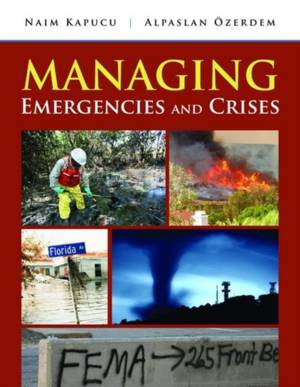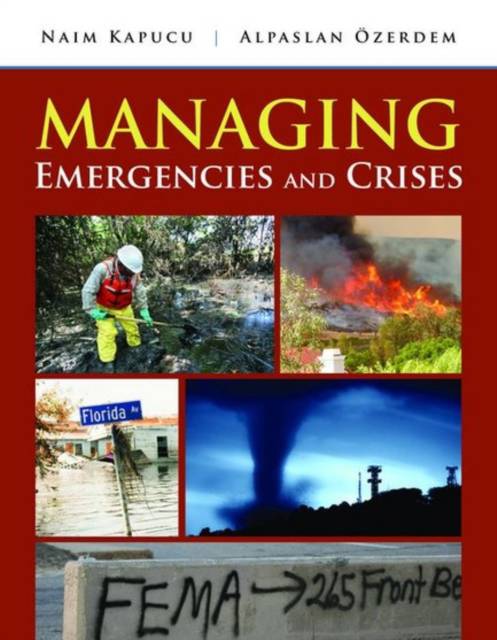
- Afhalen na 1 uur in een winkel met voorraad
- Gratis thuislevering in België vanaf € 30
- Ruim aanbod met 7 miljoen producten
- Afhalen na 1 uur in een winkel met voorraad
- Gratis thuislevering in België vanaf € 30
- Ruim aanbod met 7 miljoen producten
Zoeken
€ 114,95
+ 229 punten
Omschrijving
As the scale, frequency, and intensity of crises faced by the world have dramatically increased over the last decade, there is a critical need for a careful evaluation of knowledge of managing disasters. Managing Emergencies and Crises presents the experience of emergency management from a continental perspective by focusing on the emergency response systems, processes, and actors in the context of the United States and Europe. It explores the institutional, socio-cultural and political aspects of crisis response and management. Your students will examine questions such as: What does the experience of disaster response from Japan, Pakistan, Greece and Turkey to the UK and US tell us about the state-civil society cooperation in such environments? How effective are the existing prevention and preparedness mechanisms to protect societies against disasters? What specific roles are attributed to state, federal, international and private sector participants at a rhetorical level and how those actors actually carry out their 'responsibilities' and work with each other in the event of a crisis?
Specificaties
Betrokkenen
- Auteur(s):
- Uitgeverij:
Inhoud
- Aantal bladzijden:
- 288
- Taal:
- Engels
Eigenschappen
- Productcode (EAN):
- 9780763781552
- Verschijningsdatum:
- 21/10/2011
- Uitvoering:
- Paperback
- Formaat:
- Trade paperback (VS)
- Afmetingen:
- 152 mm x 226 mm
- Gewicht:
- 385 g

Alleen bij Standaard Boekhandel
+ 229 punten op je klantenkaart van Standaard Boekhandel
Beoordelingen
We publiceren alleen reviews die voldoen aan de voorwaarden voor reviews. Bekijk onze voorwaarden voor reviews.











